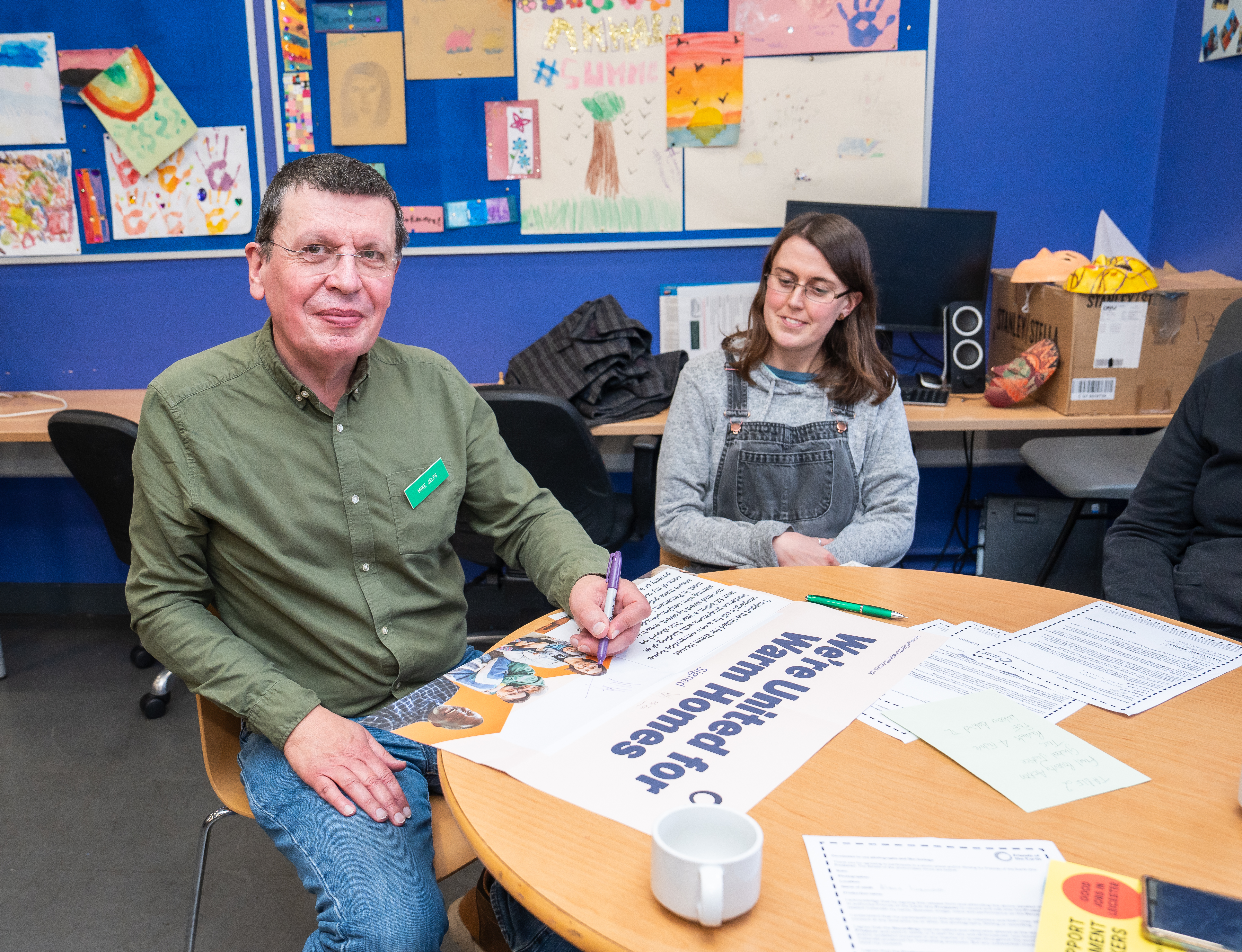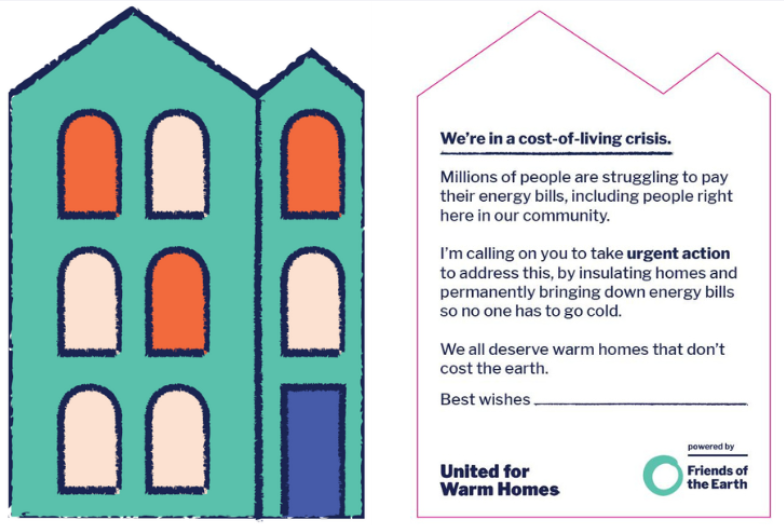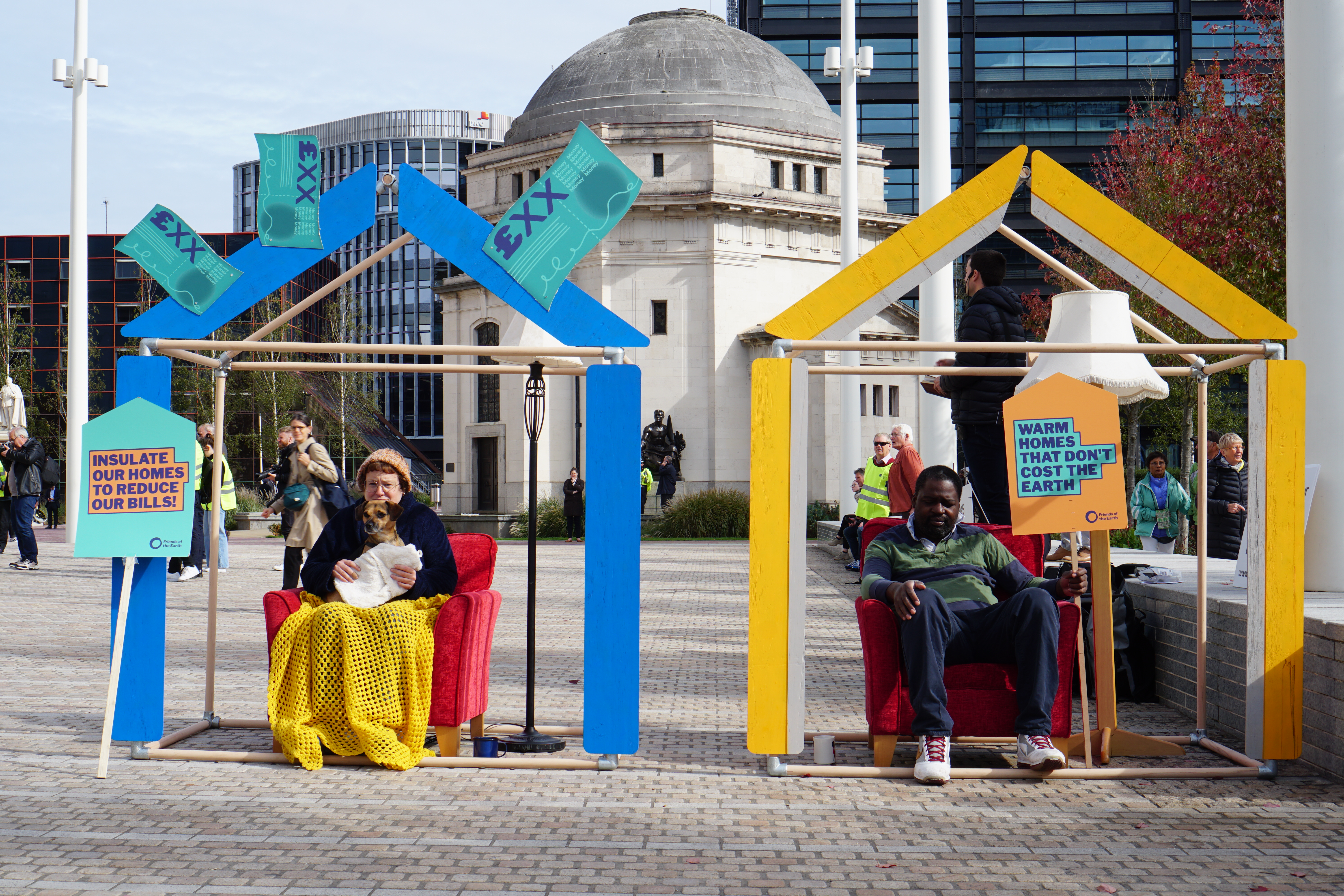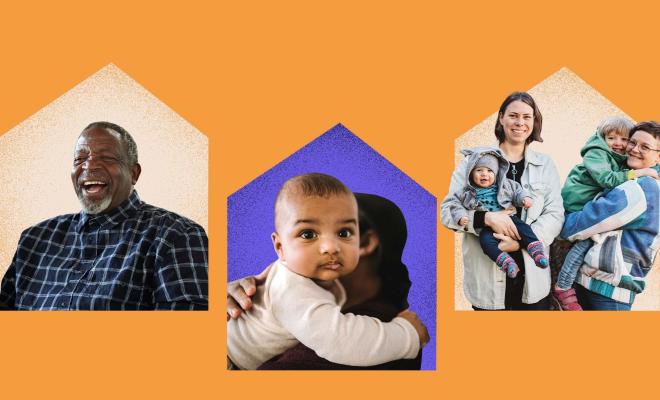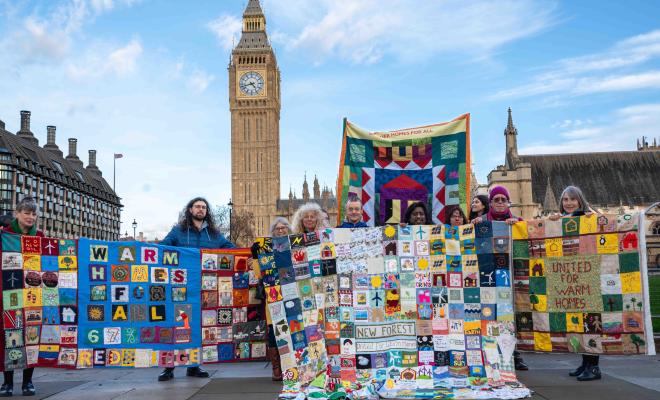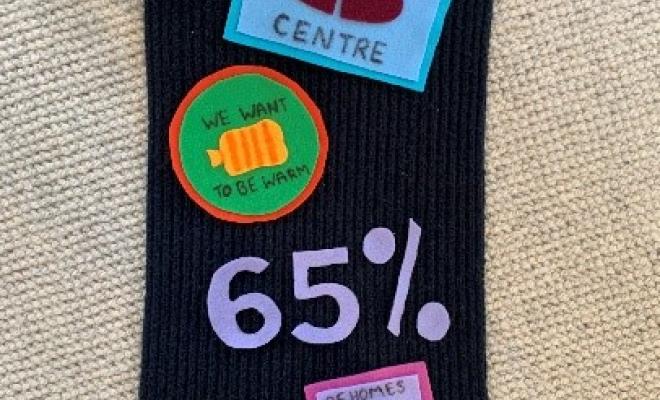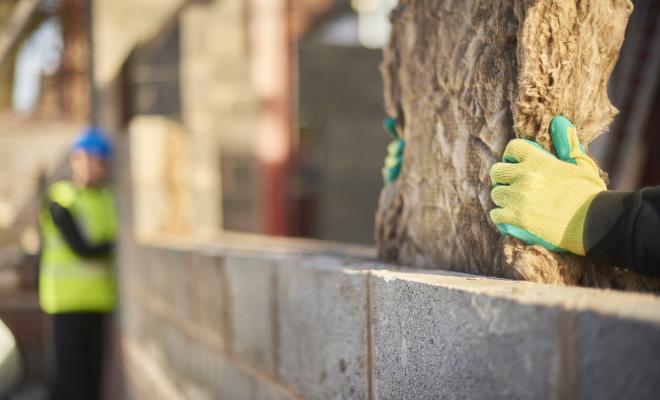26 Feb 2025
Find your campaign partners
Start by mapping out local organisations, particularly focusing on community groups that represent or work with people most impacted by sky-high energy bills. This could include food banks, renters’ unions, mutual aid groups or faith groups. Think outside the box so you can reach beyond your usual partners.
Get in touch to find out more about what they do, tell them about your group and explain what you're hoping to achieve locally. If they’re interested, invite them to campaign with you for warm homes. Make sure this is an equal partnership by involving them in your campaign planning and supporting their work too.
Campaign tactics to build local support
Make a campaign scarf
Host a craftivism session with your community to make scarves representing why we need warm homes for all. You can show these scarves to your local politicians to demonstrate the breadth of support for warm homes.
Find out how to make a campaign scarf with your local community and partners.
Gather petition signatures
Gathering petition signatures is a powerful way to show widespread community support. Order our template postcards to collect petition signatures from your community and send them to your local politicians.
Send the postcards to your local politicians in batches, or bring them along to a meeting so they can see the diverse community support behind your campaign. You could also display the postcards more creatively, for example by sharing photos of them on social media (if you have permission to do so) and tagging y
our politicians, or by creating a collage of them at events.
You can also set up an online petition using Action Network. Get in touch if you’d like support to set up an account.
Speak to your neighbours about the campaign by going door to door, asking them how they've been impacted by sky-high bills and to sign a postcard.
Meet people on their own turf by asking for space to hold a stall or workshop at local events, libraries, religious services, food banks or other spaces where people gather. This will help you reach people outside of your usual networks.
Make your campaign visible by putting up posters around your community, handing out flyers and stickers, and displaying campaign placards at stalls and events. Order resources online for free, or make your own posters and flyers using our templates.
Organise events and stunts
What type of event would work best to meet your goals and reach new audiences? Maybe a film screening, coffee morning or panel event? Whatever you choose, ensure your event is as welcoming and accessible as possible.
You can also get creative and think of a memorable way to communicate your campaign message through a stunt. A visual stunt is a great way to get the attention of passers-by, and you could even use the opportunity to invite your local politicians down to hear about the campaign. Take photos of the stunt to share on social media and gain some local media coverage for your campaign too.
Use social and local media
Use social media to advertise upcoming events and share key campaign updates or relevant news stories.
Media coverage is also a great way to draw attention to your campaign. Ask your local newspaper or radio station to publicise an upcoming event, share local fuel poverty data and publish quotes from your members. Check out our guide to getting your campaign in the local media for more info.
Next steps
Once you've built up some support in the community, it's time to start talking to politicians about your demands.
Don't forget you can apply to the local action group fund if you need financial support for your campaign activities.


